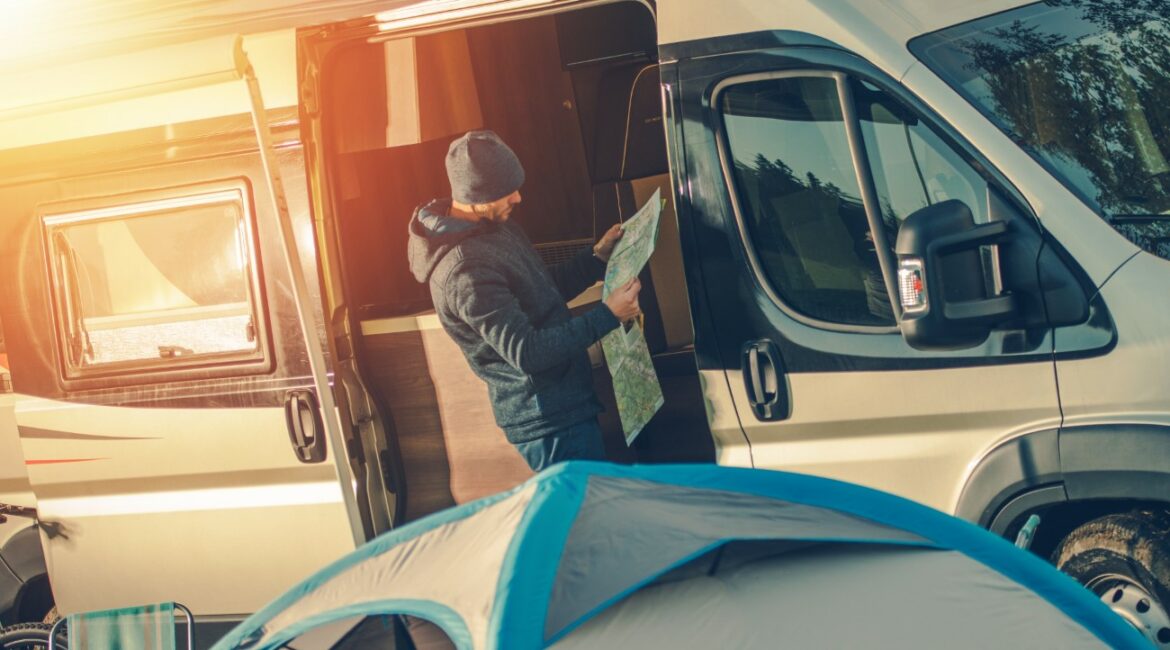The “Simple” Fixes Can Sometimes Be Deceiving
You might think, “It’s just a minor leak. How hard can it be?” But sometimes, the smallest issues can be the trickiest. Remember that time you thought you could easily swap out that old faucet, only to find out the connections in your RV model were different than expected? Yep, been there. Your RV is like a puzzle, and sometimes even minor adjustments can lead to unforeseen complications. But don’t be disheartened. With a bit of patience and the right tools, even the tricky problems become manageable.
Seasonal Shifts Affect Your RV More Than You Think
Your RV isn’t just battling the elements during your adventures; it’s also grappling with them while parked. From the scorching sun to the freezing cold, these conditions can affect seals, batteries, and even your RV’s paint. It might sound surprising, but you’ll want to check on your RV even during its “off” season. Just a quick inspection can help you catch issues before they become big problems.
Professional Repairs Aren’t Always the Answer
We’ve all had those moments of utter frustration where we’ve thought, “I’ll just let a professional handle it!” And while mechanics can be lifesavers for complex problems, there are plenty of repairs you can tackle on your own. With the plethora of online tutorials and RV communities, a bit of self-education can save your wallet in the long run. And let’s be honest, there’s a certain pride in fixing up your home-on-wheels by yourself.
The Importance of Quality Spare Parts
When you’re out on the open road, the last thing you want is for a subpar replacement part to give out. Many RV owners, in an attempt to save money, might opt for cheaper parts without considering their durability. Think of your RV parts as you would a safety net – they’re there to ensure your vehicle runs smoothly and without issues. Investing in quality spare parts from the get-go not only ensures the longevity of your RV but also provides peace of mind during your travels. Remember, you might be far from the nearest repair shop when something gives out.
Understanding Your RV’s Electrical System
Ah, the intricacies of RV electrical systems! While many RVers might find the topic daunting, having a basic understanding can be a lifesaver. Unlike your home, your RV operates on both a 12V DC system and a 120V AC system. The 12V system runs off your batteries and powers essentials like your lights and water pump. The 120V system, on the other hand, is what you use when plugged into an external power source, like at a campsite. Familiarizing yourself with these systems means you’re better equipped to troubleshoot should an electrical issue arise.
DIY Maintenance Tools: Building Your RV Toolkit
As you journey through the world of DIY RV repairs, you’ll quickly realize the importance of having the right tools for the job. But what exactly should you include in your RV toolkit? Start with the basics: a set of screwdrivers, pliers, an adjustable wrench, and a hammer. As you become more comfortable with repairs, you might find the need for more specialized tools like a voltmeter for electrical tasks or a torque wrench for wheel lug nuts. While it’s tempting to go all out and prepare for every eventuality, focus on building a toolkit tailored to your skill level and the specific needs of your RV.
FAQ : Unraveling the Mysteries of RV Repairs
- How often should I inspect my RV for potential issues?A good rule of thumb is to give your RV a thorough inspection at the start and end of each season, or every three months if you’re using it year-round. Additionally, a quick check-up before and after each trip can help catch immediate issues.
I’ve noticed some water damage. How urgent is this?
Don’t delay with water damage! Even a small amount of moisture can lead to mold, rot, and significant structural issues. Address this immediately to prevent more costly repairs down the line.
Is it worth investing in an extended warranty for my RV?
An extended warranty can be a great safety net, especially for those unforeseen major repairs. However, always read the fine print and understand what’s covered. It’s essential to weigh the cost of the warranty against potential repair costs and your comfort level with DIY fixes.
How do I know if a repair is too advanced for me to handle on my own?
Trust your gut. If you’re feeling uncertain after researching and understanding the scope of the repair, it’s okay to seek professional help. There’s a balance between saving money and ensuring the job is done right.
Remember, your RV is more than just a vehicle; it’s your home on the road. With a bit of proactive care and a willingness to learn, you can keep it in tip-top shape for all your adventures to come. Safe travels and happy repairing!
- Transform Your Health with Medford Medical Weight Loss Program - June 9, 2025
- A Chat with Nate and Mika, Christian Wedding Photographers - July 18, 2024
- Ultimate Guide To Playing Online Casinos - May 27, 2024









